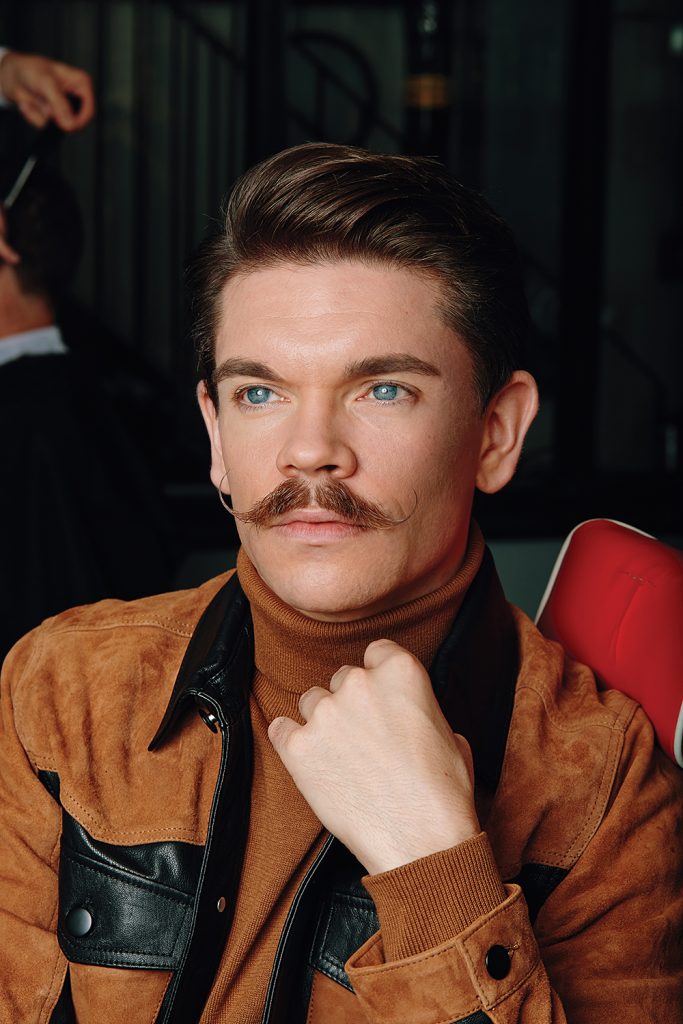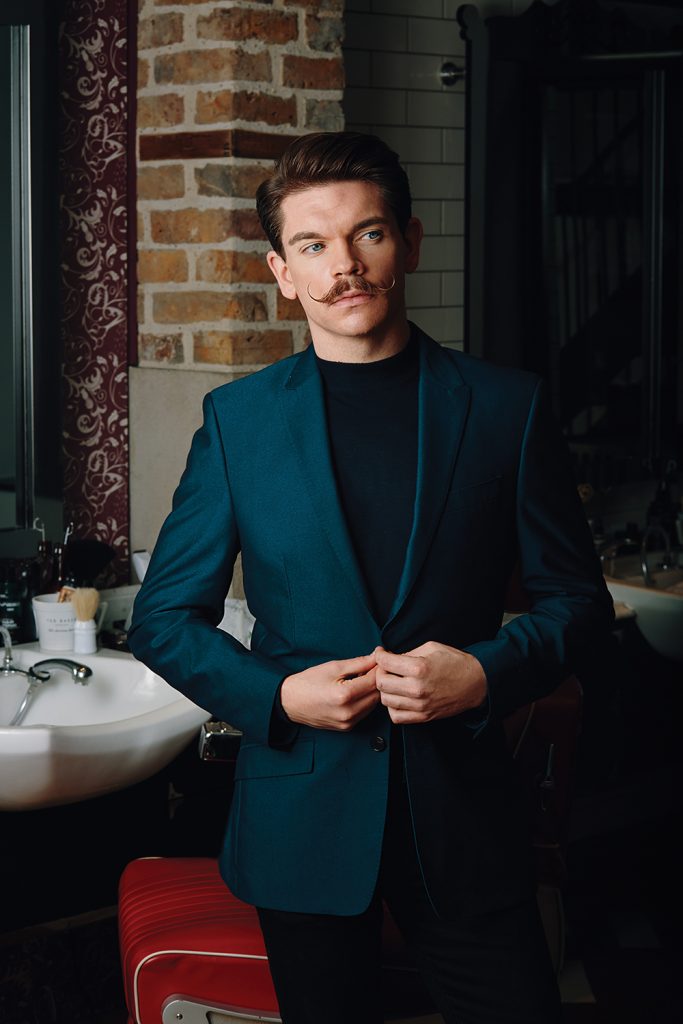We speak to the male grooming blogger about the importance of analytics, capturing an audience and why blogging is still where in-depth connections happen…

Photography: Kyle Galvin
Robin James is sitting in a red barbers chair at Ted’s Grooming Room, casually looking over his shoulder at our photographer’s camera lens. The retro salon just off of Oxford Street makes the perfect backdrop for our shoot with the Man For Himself blogger and YouTuber, and after an hour or so we settle into a couple of armchairs and get stuck into discussing what inspired him to start creating content online.
“I started my blog (then called The Utter Gutter) in 2011 and in April the next year I started my YouTube channel. While I was running my blog and YouTube I was also working for ITV on shows like X Factor and Dancing on Ice. As my blog and YouTube started to grow I had to make a decision about whether or not to leave my job (and good salary), and I decided to do it. During the first three months of going solo I had £200, that was it. But I was happier than I had ever been and I was doing what I loved – creating my own content – which was exciting.”
Since 2011, Robin, 31, has built an impressive audience of 266,000+ subscribers on his YouTube channel. Although he has dabbled in different types of content over the past eight years, he has found that videos that focus on grooming perform best on his channel.
“Grooming content is what I started with. I was fascinated by the girls, like Fleur De Force and Pixiwoo, creating makeup tutorials online. I really liked what they were doing and I had always experimented with hair products and makeup myself so it made sense to create that type of content.
“I’ve also have an interest in style, but style is so subjective and led by what your followers want to see. Grooming and beauty do have trends, but it is a bit more universal and in terms of searching for content, people look for product reviews so it’s easier to capture an audience via that content.”
Capturing an audience is something that has always been at the forefront of Robin’s mind. Working for a major TV company meant that when it came to his own online content, Robin was aware of how to optimise it for search engines – making it more discoverable and easier to build an audience.
“SEO (search engine optimisation) was always on my mind, it was always something I did. When I was at ITV we had an SEO specialist for everything we did and we would optimise based on the show, the cast, the characters etc. So it was always something I was aware of doing for online content. I had an understanding of it and I still consider it when creating any piece of content.”
Robin’s analytical approach to creating content is something that crosses over into the brand collaborations he works on. Whatever it is, he likes to ensure the feedback provided to the brand is detailed and useful.
“I’m really transparent about my stats with brands, I give them a full breakdown. I know I’m in a bit of a minority – my audience are 93% male and 18+ – so Ireally push that because it’s a selling point to brands. When I work with brands I do a PCA (post-campaign analysis). I give them breakdowns of stats and show them the click throughs. It’s important because when you buy a product you want areceipt for what you’ve paid for.
“There are a lot of people that don’t offer that and I think it’s a problem. If I was the brand I would want evidence of what I had received in exchange for my money. Sure, you can see how many likes something gets on Instagram, but that often doesn’t mean much. With a blog you can track someone’s journey around the site, you can see dwell time and the comments. Instagram isn’t as in-depth as that and I don’t think it creates as intense a conversation as a blog post can.”
As the blogging community, and social media, have expanded over the past decade there has been an increase in people who want their own slice of the pie, but Robin worries that a lot of people are just interested in the end result of fame and money, rather than the actual process of creating content.

“I think one of the issues at the moment with a lot of people who want to start a blog is that they want the end product of success. When I started my blog there was no roadmap, so you didn’t know that people would be successful. You started because it was a passion project that you enjoyed. I used my blog as a place to share my interests. But now I get a lot messages from people saying ‘I want to do your job, how do I do it?’ and I always tell them to just start and stop worrying about what you need to succeed.
“If you’re doing it for the right reasons, you will garner an audience and create something. To be honest, it doesn’t matter if noone is looking at it because you’ve got to create content to start with. I learnt as I went along, there are some things I’ve written that have had no views and it’s just a part of the process.”
Although Robin accepts the peaks and troughs that come with a career embedded in social media, he has always had a business mindset when it comes to creating content and a view to turn his blog into a full-time job.
“When I started my blog, I did think I would make it into a business in the future. Maybe it’s cocky to say, but I knew that I wanted that to happen. I always worked hard at school, I worked hard atuni and I’ve done a marathon. If I want something, I put my mind to it and I do it. I put myself through physical and mental stress (which probably isn’t a good thing) but I wanted out of the job I was in and I did see the potential with my blog. It’s still growing, but I do now earn enough to live and I enjoy it.”
